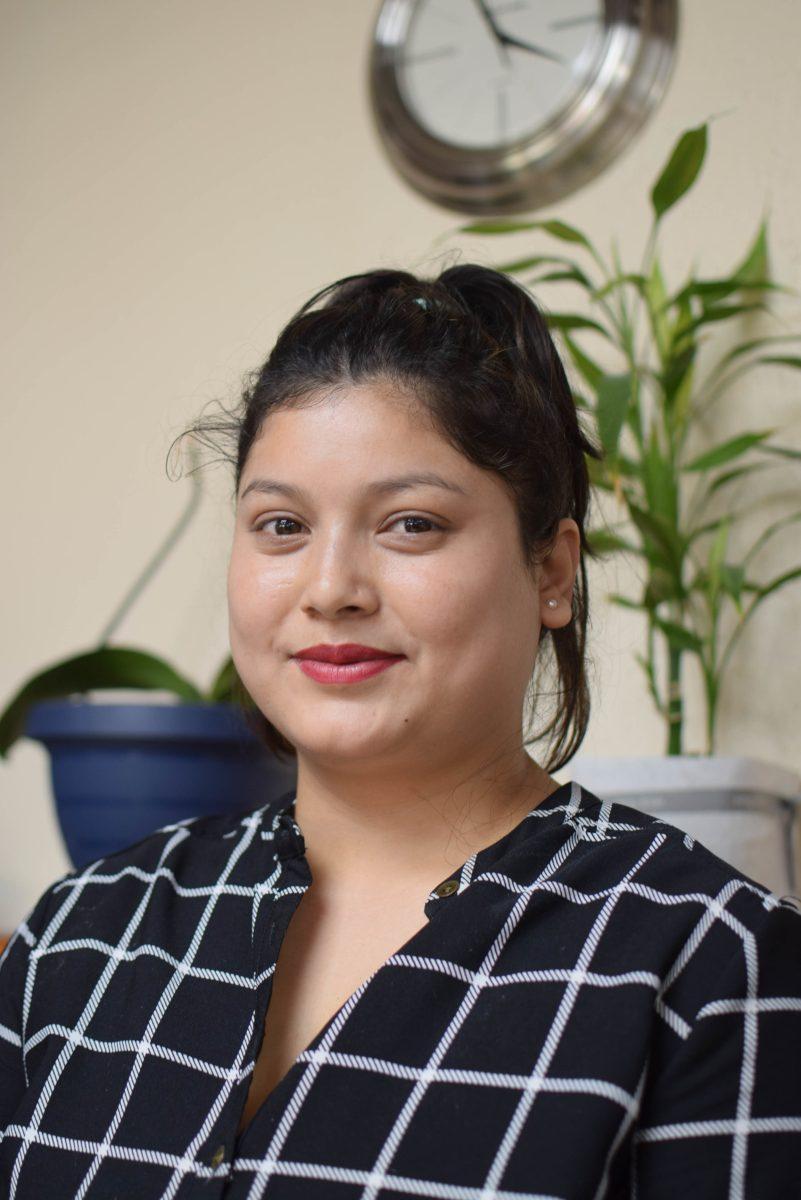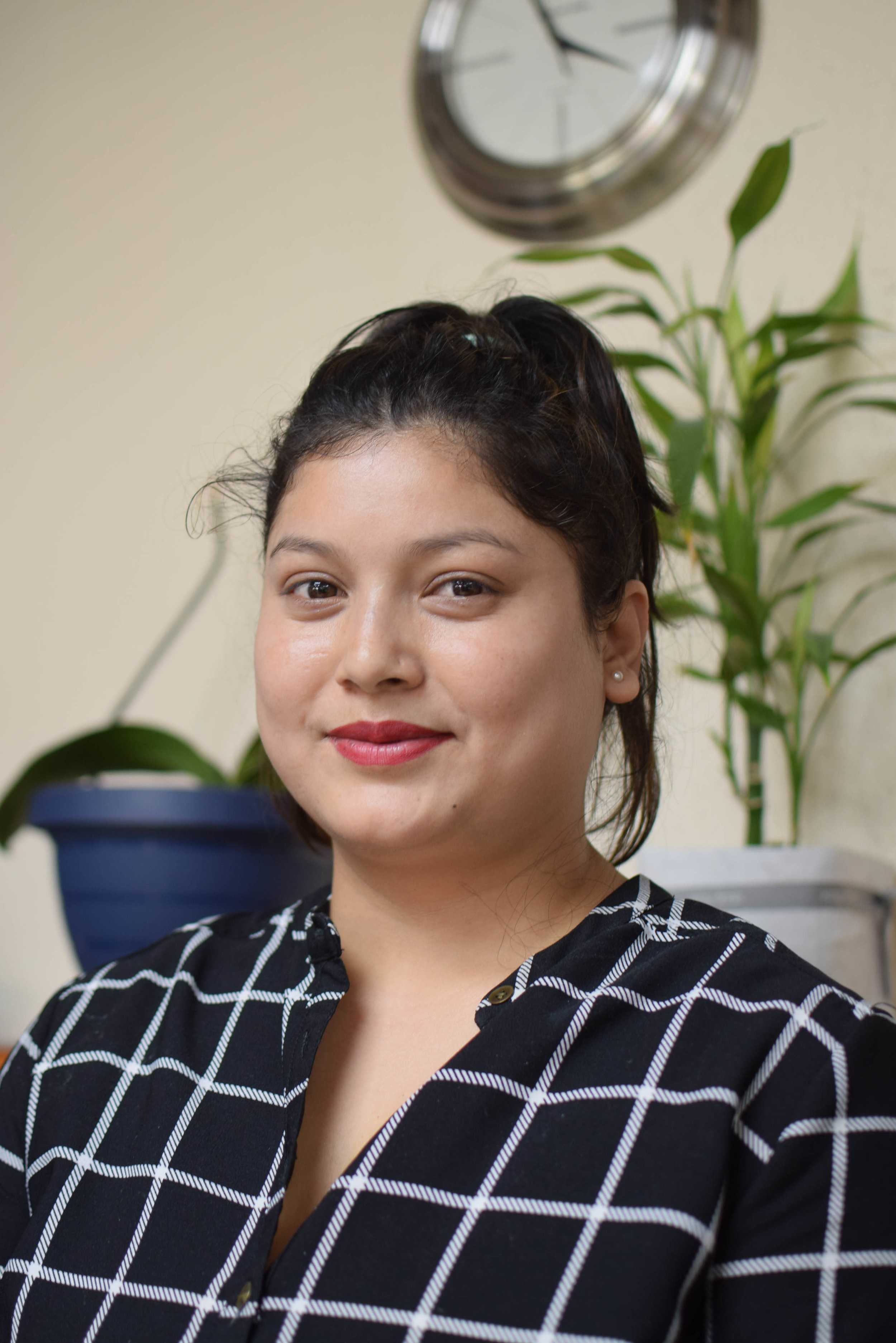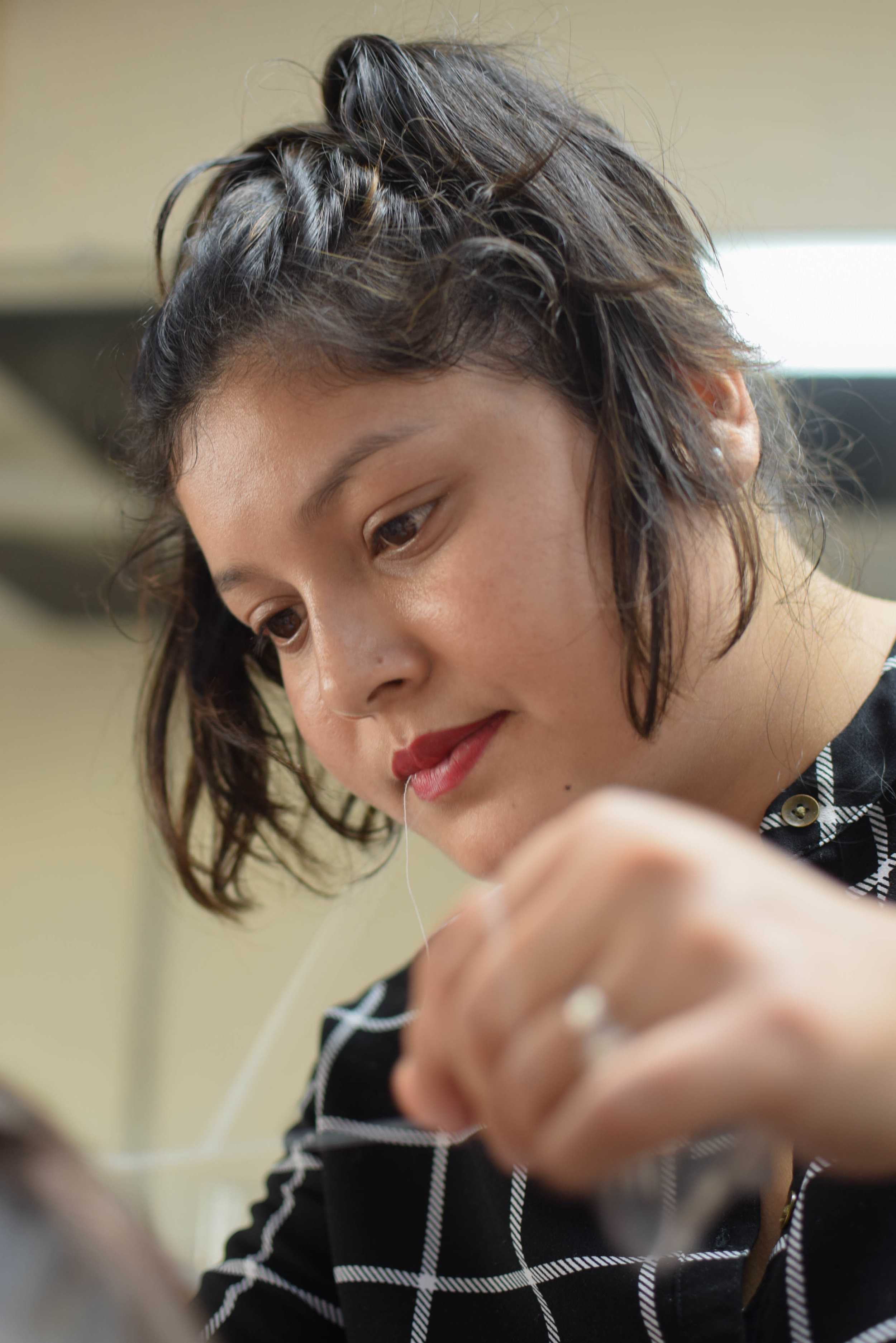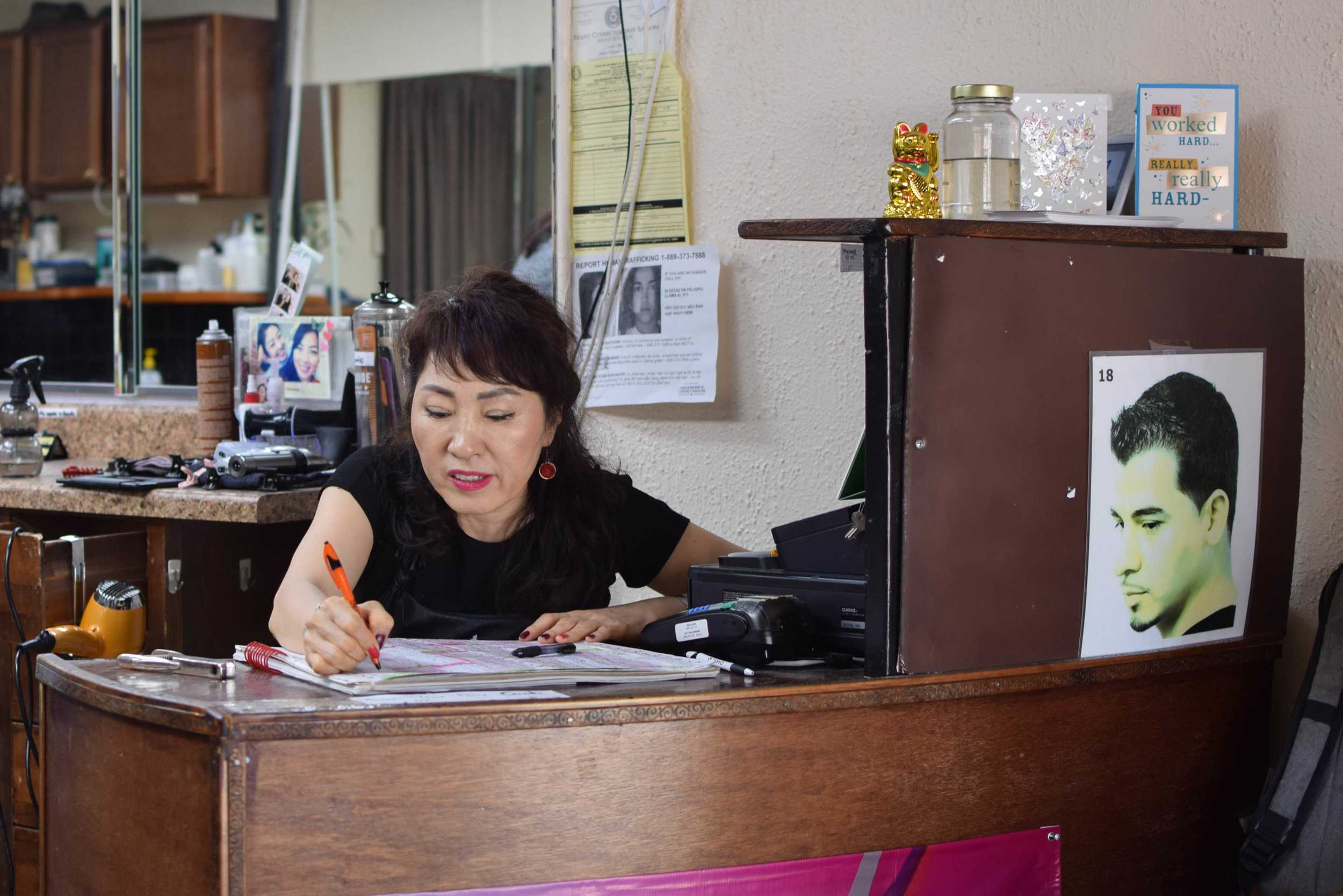Roji Prasai, mother of a 14-month-old daughter, Austin Community College student and proud member of the Greater Austin Nepali Society.
If you have ever invested in facial hair grooming at the Alante Salon on Guadalupe Street, there is a chance that you have gotten threaded or waxed by Roji Prasai. University of Texas at Austin students might know her for doing eyebrows, but when she’s not shaping brow bones, she’s raising a daughter, working as a student and staying in touch with the thriving Nepalese culture in Austin.
Story by Adriana Rezal
Photos by Maya Dandashi
Prasai says it’s been eight years since she left her home country of Nepal. Originally, she left Nepal to pursue an education in England at the London School of Business and Finance. Two years later, Roji moved to Austin and has been living here ever since.
“I don’t wanna move out of here,” she says. “I love the weather; I love everything about Austin.”
In addition to working at Alante, Prasai is taking accounting classes at Austin Community College and is raising a 14-month-old daughter. Despite being a busy mom and student, Prasai says she still makes an effort to stay close to her Nepali culture whenever she can. One way she does this is through her membership with the Greater Austin Nepali Society (GANS).
The non-profit organizes various events like Teej Celebration and “Nepal Idol,” aimed to bring the Nepali community together. Prasai says the Austin-based organization is open to everyone.”If you are Nepalese by birth, born here or in Nepal, it doesn’t matter,” she says. “Even if you’re not Nepalese, you can just come and join. There’s not a strict policy, it’s just about celebrating and getting together. That’s [GANS’s] biggest priority.”
On April 14, GANS hosted a community picnic to celebrate the 2076 Nepalese New Year. Families enjoyed the bluebonnet fields of Brushy Creek Park as GANS organizers passed out food to attendees in celebration of the new year. GANS treasurer Sakul Koirala said that GANS is becoming a more active organization in the Austin community. “More than 1500 people are participating in this picnic today,” Koirala says. “It’s awesome, we are doing good.”
Roji Prasai, a beautician at Alante Salon on The Drag, threading her client of over three years. Roji has worked as a facial hair removal specialist at Alante for around four years.
He says as more people participate with the organization, their expectations of the organization will grow as well. The non-profit is currently shifting its focus toward programs that will empower Nepali youth in Austin. “While there’s more participants, you need to be active,” Koirala says, “When people are expecting more from you, you have to be serious in regards to whatever people need.”
Many Nepali immigrants came to Austin in the early 2000’s by means of the Diversity Immigrant Visa Program or “DV Visa.” According to the U.S. Department of State, the visa is an annual program in which applicants from countries with historically low levels of immigration into the U.S. are randomly chosen and granted entrance into the States.
Prajwal Dhakal, vice president of UT’s Nepali Student Association, says he moved to Austin from Nepal in 2005. He says he remembers attending GANS events and says they helped him stay connected to his Nepali background. When Dhakal came to UT, he joined NSA as an on-campus resource to stay connected to his culture and meet other Nepali UT students. “I wanted to stay connected to my roots because I really like hanging out with Nepalese people,” he says. “[There is a] close identity and everyone is so kind.”
Dhakal says the Nepalese community is known for its hospitality. When his family first came to Austin, the Nepalese community was welcoming and supportive, even helping his parents find jobs. “[Nepali] hospitality is just, next level,” he says. “Everyone tends to help each other in any way possible. I feel like that’s why everyone’s so close, especially [in Austin].”
Hairstylist and owner of Alante Salon, Sanya Kim, checks out a client at the register. Kim opened Alante over four years ago.
In addition to attending on-campus events and meeting other Nepali people, Dhakal says he’s also been able to improve his mother tongue through NSA. He says language is an important factor for staying close with one’s culture.
Dhakal has a younger brother who was born in the U.S. and has a harder time speaking Nepalese and believes this makes it difficult to stay in touch with his grandparents back in Nepal. “He’s not able to effectively communicate just because he doesn’t understand or speak Nepali that well,” he says. “He knows a few words here and there but it’s just so hard for them to communicate.”
Prasai says she also values teaching her Austin-born daughter the language. While it’s important to attend cultural events, Prasai says, teaching Ridhi Nepali is her top priority. Prasai says that as Prasai grows up and goes to school, language rules will be implemented at home to make sure she doesn’t forget Nepali and can always communicate with family in Nepal. “After [Ridhi] goes to school, there will be a sign board in my house, No English Once You Enter This House ,” she says. “She needs to learn this language so she can communicate with her relatives, with her family so she can get close with them, of course.”














































